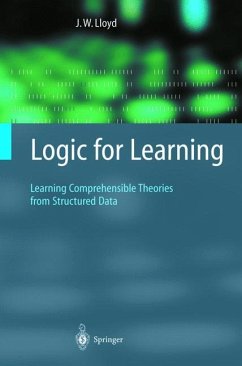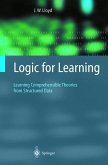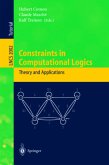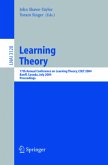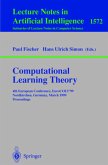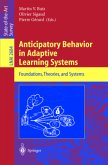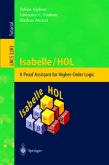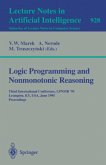This book is concerned with the rich and fruitful interplay between the fields of computational logic and machine learning. The intended audience is senior undergraduates, graduate students, and researchers in either of those fields. For those in computational logic, no previous knowledge of machine learning is assumed and, for those in machine learning, no previous knowledge of computational logic is assumed. The logic used throughout the book is a higher-order one. Higher-order logic is already heavily used in some parts of computer science, for example, theoretical computer science, functional programming, and hardware verifica tion, mainly because of its great expressive power. Similar motivations apply here as well: higher-order functions can have other functions as arguments and this capability can be exploited to provide abstractions for knowledge representation, methods for constructing predicates, and a foundation for logic-based computation. The book should be of interest to researchers in machine learning, espe cially those who study learning methods for structured data. Machine learn ing applications are becoming increasingly concerned with applications for which the individuals that are the subject of learning have complex struc ture. Typical applications include text learning for the World Wide Web and bioinformatics. Traditional methods for such applications usually involve the extraction of features to reduce the problem to one of attribute-value learning.
Hinweis: Dieser Artikel kann nur an eine deutsche Lieferadresse ausgeliefert werden.
Hinweis: Dieser Artikel kann nur an eine deutsche Lieferadresse ausgeliefert werden.
From the reviews of the third edition: "John has tried his hand at machine learning, and his aim in Logic for Learning is to demonstrate 'the rich and fruitful interplay between the fields of computational logic and machine learning'. ... As such, the book is more geared towards computational logicians who are interested in machine learning ... . The book can also be used as a textbook in a mathematically oriented advanced graduate course. ... it is indeed great stuff, which deserves to be taken serious by any computational logician ... ." (Peter Flach, TLP - Theory and Practice of Logic Programming, Issue 4, 2004) From the reviews: "This book provides a systematic approach to knowledge representation, computation, and learning using higher-order logic. It is aimed at researchers, graduate students, and senior undergraduates working in computational logic and/or machine learning." (PHINEWS, Vol. 3, April, 2003)

